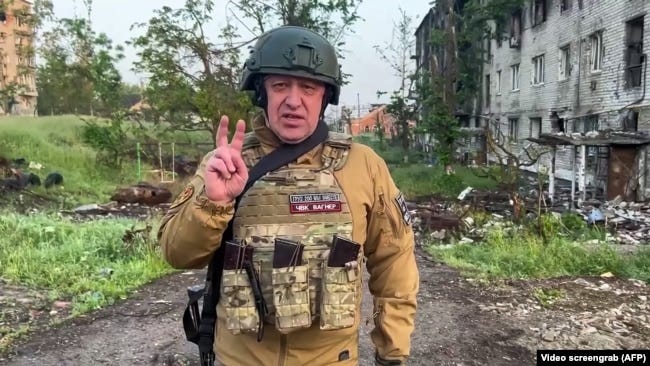War for Profit: The Wagner Group & The Growing Role of Private Military Companies in 21st Century War
Mercenaries are replacing conventional troops around the globe. Here's why that's bad.
Welcome readers! I’ve got good news and bad news. The bad news is that, unfortunately, I’ve had to put this article (and many others like it) behind a paywall. I wish everything I write could be free for all, but the reality is producing this content is quite laborious, and I’ve got bills to pay.
The good news, however, is that you can unlock this full article, as well as everything else I write, craft, and create, for just a quarter. An annual subscription cost $30, meaning every piece I produce will cost you less than .25 cents. If you think reading this article — as well as supporting the work that goes into making JoeWrote happen — is worth the cost of a gumball, then I would encourage you to become a premium subscriber today.
Thank you for your support! Without it, JoeWrote couldn’t exist. In Solidarity,
Joe
Last weekend, the antics of the Russian Wagner Group brought the war in Ukraine, as well as the role of private military contractors (PMCs) back into the national spotlight. In a story pulled straight from Game of Thrones, Wagner leader Yevgeny Prigozhin led his mercenaries on a mutiny march toward Moscow, threatening Russia’s war effort. Prigozhin eventually backed down, but not before making Wagner a household name.
Since the war’s onset, Wagner has become infamous as the vanguard of the Russian invasion. Many are familiar with its Neo-Nazi affiliations (it’s suggested the group is named after Richard Wagner, Hitler’s favorite composer, though I could find no confirmation) and its “Dirty Dozen-style” recruiting tactics of enlisting convicts straight from Russian prisons. And while the Wagner Group has risen to international notoriety, what is less known is the growing extent that it, and other private military companies, play in the role of 21st-century imperial wars.

The real benefit of employing private military companies (PMCs) for foreign war is not what they do abroad, but what they do at home. Mercenaries don’t have to be conscripted, avoiding the public uproar brought by draft efforts, such as during America’s Vietnam War or Russia’s experience in World War I. PMCs are also able to exist in a sort of “gray zone,” providing plausible deniability for their employer. They fight on behalf of their client nation, but when they are killed, it is much easier to obscure their losses than those of traditional soldiers. “50,000 Russians have died so far in Ukraine” is going to cause a lot more trouble for Vladimir Putin than burying Wagner’s losses in an obscure military file. They also provide a layer of plausible deniability, such as the case with Putin’s denial that Russian troops were in Crimea in 2014. In actuality, Crimea had been invaded by Wagner fighters acting on behalf of Russia, clouding Putin’s involvement behind a layer of diplomatic “well actually’s.”
By significantly reducing the domestic pressures war places on politicians, PMCs have become integral to the way 21st-century war is waged. Now, powerful nations like the United States and Russia can send “troops” abroad to impose their will, while avoiding the domestic strife that foreign intervention brings.
PMCs In Use
Around the globe, mercenary armies are becoming increasingly frequent, a disturbing trend for anyone who wishes to see the levels of global conflict reduced. For Russia, Wagner has played a huge role in the war in Ukraine. Earlier this year, the U.K. Ministry of Defence estimated Wagner had about 50,000 fighters in Ukraine, making them approximately 10% of all Russian forces. (Estimates of total Russian forces vary, but the consensus hovers around 500,000.)
But Ukraine is not Wagner’s only assignment. The group is active globally, particularly in the Middle East and Africa as security and anti-insurgency forces, where they frequently take payment in the form of natural resources. Their presence is also well-noted in Syria as Russia’s military support for Bashar al-Assad, putting them in frequent conflict with American troops, including a full-fledged battle in 2018.

But while Russia’s use of Wagner may seem unique, it is not. In fact, compared to the U.S.’s employment of PMCs, it’s relatively minute.



